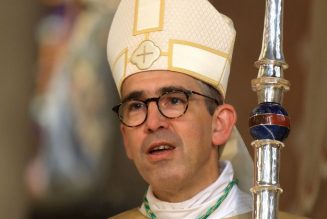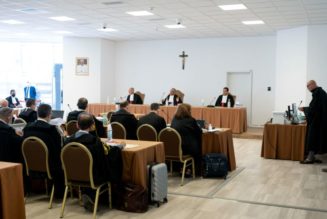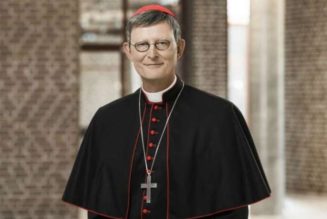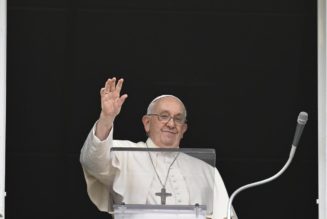Bishop Zanchetta led the Diocese of Orán, located in northern Argentina, from 2013 until 2017.
Bishop Gustavo Zanchetta was sentenced to four and a half years in prison on Friday, March 4, after an Argentine court found him guilty of sexually abusing seminarians.
Bishop Zanchetta, 58, pleaded not guilty to the charge of “aggravated continued simple sexual abuse committed by a recognized minister of religion” on Feb. 21. He was accused of abusing two seminarians, who were identified by the acronyms “G.G.F.L.” and “C.M.”
The two victims said that Bishop Zanchetta had made “amorous proposals” and had requested “massages” from the two.
Bishop Zanchetta led the Diocese of Orán, located in northern Argentina, from 2013 until 2017. His episcopal appointment was one of the first done by Pope Francis in his native Argentina.
He stepped down in 2017, claiming “health reasons,” and was subsequently appointed as an assessor at the Vatican’s Administration of the Patrimony of the Holy See (APSA), a specially created position. The APSA oversees the Vatican’s real estate holdings and other sovereign assets.
As of June 2021, Bishop Zanchetta was no longer with the APSA. He previously had been suspended, then reinstated, from the role amid a canonical investigation into his conduct.
Bishop Zanchetta’s trial, which was initially set to begin in October, was delayed four months at the request of his attorney. The defense attorney had asked the judges to wait for the files of the canonical process that Bishop Zanchetta is undergoing at the Congregation for the Doctrine of the Faith.
The Vatican has not yet publicized any information regarding the canonical process, and any determinations that have been reached, regarding Bishop Zanchetta.
While this is Bishop Zanchetta’s first conviction in a criminal court, allegations of sexual misconduct were first raised in 2015.
According to Argentinian newspaper El Tribuno, one of Bishop Zanchetta’s secretaries accidentally discovered sexually explicit images that were sent and recieved from his cell phone in 2015. The secretary alerted authorities, stating that the pictures included “young people” engaged in sexual activity, as well as lewed images of the bishop.
In October 2015, Pope Francis summoned Bishop Zanchetta to Rome for five days. At the time, Bishop Zanchetta informed Pope Francis that his phone had been hacked, and that the allegations against him were motivated by anti-Pope Francis sentiment.
Francis reportedly accepted the bishop’s explanation that his cell phone had been hacked, and took no further action.
This is a developing story.
Join Our Telegram Group : Salvation & Prosperity








